#Tress Macneille
Text

PROFILES IN HISTORY: On September 13th, 1993 Yakko, Wakko and Dot were released from the Water Tower on the Warner Bros. Lot, and into the living rooms across America, and the world. Thanks to Steven Spielberg, Tom Ruegger, Jean MacCurdy and the whole “Animaniacs” team, things haven’t quite been the same ever since! Happy Birthday guys!
#Spike Brandt#Steven Spielberg#Tom Ruegger#Jean MacCurdy#Tony Cervone#James Tucker#Jon McClenahan#Animaniacs#Warner Bros#Warner Bros Animation#StarToons#Yakko#Wakko#Dot#Rob Paulsen#Jess Harnell#Tress MacNeille#WB Lot#Warner Brothers and the Warner Sister
69 notes
·
View notes
Text

#tv shows#tv series#polls#tiny toon adventures#charlie adler#tress macneille#joe alaskey#1990s series#us american series#have you seen this series poll
54 notes
·
View notes
Text
31 years ago today Animaniacs premiered on FOX!!!🤪🤪🤪
THIS IS WILL ALWAYS BE ONE OF MY FAVORITE SHOWS!!!💖💖💖
#animaniacs#the animaniacs#yakko wakko and dot#Tom Ruegger#Rob Paulsen#Maurice LaMarche#Jess Harnell#Tress MacNeille
29 notes
·
View notes
Text

Happy 73rd Anniversary, Tress MacNeille!!!
14 notes
·
View notes
Text
The short lived cartoon "Rubik, the Amazing Cube" aired its first episode on June 19, 1983. The series was about a group of four children who discovered that their Rubik's Cube was alive and posessed magical powers. The children used the Cube to go on adventures and solve mysteries. ("Pilot", Rubik, the Amazing Cube, TV Cartoon Event)
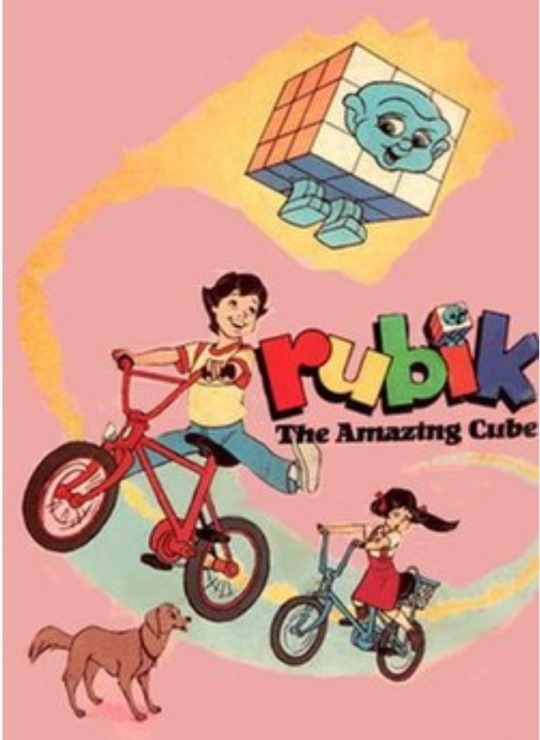
#nerds yearbook#real life event#first appearance#sci fi tv#june#1983#cartoon#animation#rubiks cube#rubik the amazing cube#ron palillo#michael saucedo#carlos#jennifer fajardo#lisa#michael bell#reynaldo rodriguez#angela moya#marla rodriguez#tress macneille#bob holt#toy#laurie faso#john stephensen#jack deleon#alan young#janet waldo#neill ross#takayo fischer
75 notes
·
View notes
Text
Despite the fact they share the same voice actress, Daisy and Dot would have great chaotic aunt and niece chemistry.
#daisy was a menace in the house of mouse#they're both sassy#both get easily angered#both cause chaos#they would say get in loser were going shopping#despite being from different companies#daisy would be the fun aunt to dot#animaniacs#dot warner#daisy duck#disney#tress macneille#mofs talks
22 notes
·
View notes
Text
So nycc and my day sucked in general, but I got fandom merch and autographs/photos I’m happy to share!
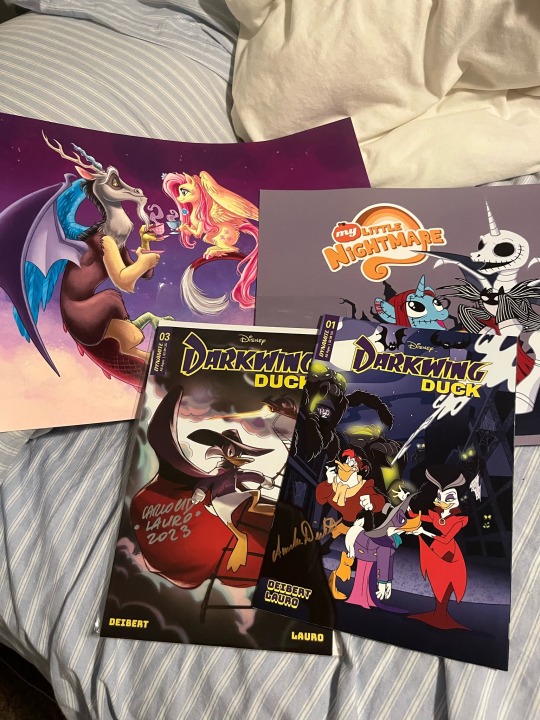
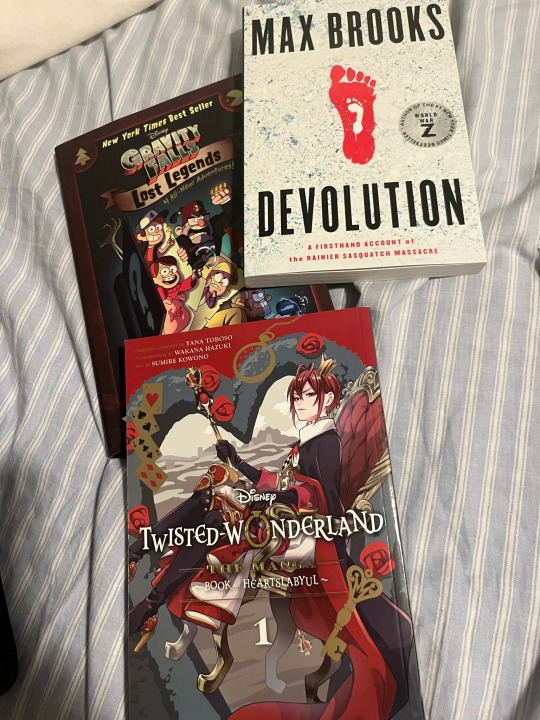

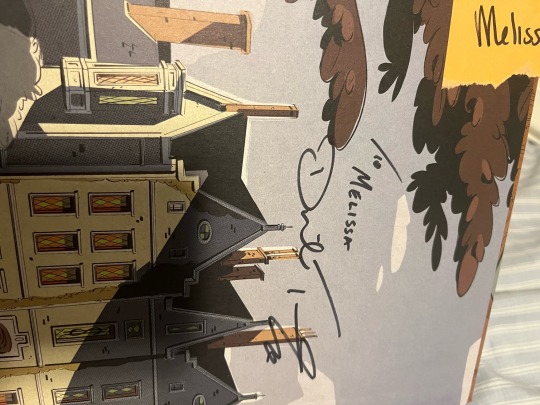

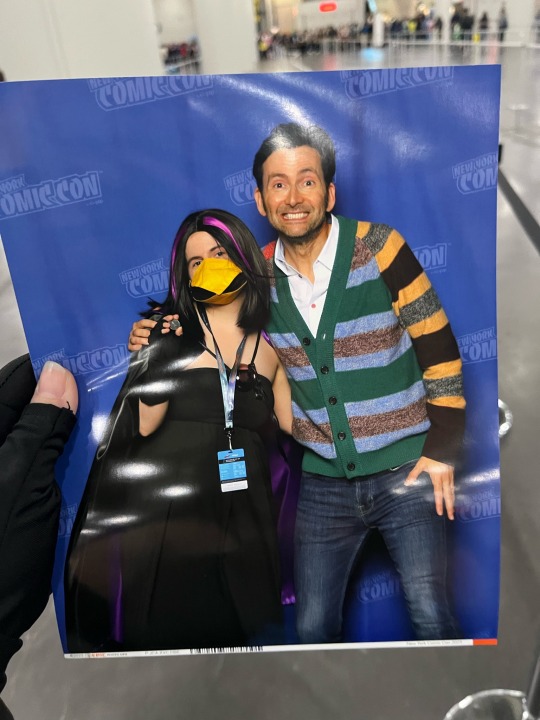
#ducktales 17#scrooge mcduck#daisy duck#tress macneille#twisted wonderland#mickey mouse#my litte pony friendship is magic#discord#fluttershy#fluttercord#the nightmare before christmas#david tennant
25 notes
·
View notes
Text

🤖 Rosey the Robot Maid 🛸
#Rosey the Robot#The Jetsons#character study#cartoon fanart#Hanna Barbera#Warner Bros Animation#Cartoon Network#Boomerang from Cartoon Network#Jean Vander Pyl#Tress MacNeille#Iwao Takamoto#futuristic#space age#60s cartoons#80s cartoons#robot#maid#Rosie's Boyfriend#Rosie Come Home#Mother's Day for Rosie#Robot’s Revenge#Wedding Bells for Rosey
7 notes
·
View notes
Text
Please listen to both songs before you vote!
"Mickey"
youtube
"Ricky"
Fun facts: "Ricky" was Weird Al's first music video! (Yesterday, we shared his second music video, "I Love Rocky Road." If you look closely, you'll see his character is wearing an "I Love Lucy" pin on his jacket.)
In "Ricky", Lucy is played by Tress MacNeille, whose work as a voice actress is so extensive that we won't list all her past roles here. Look her up! You're sure to have heard her before.
#weird al#weird al yankovic#versus weird al#vs weird al#music#polls#mickey#toni basil#ricky#i love lucy#tress macneille#Youtube
5 notes
·
View notes
Text

“No relation”-Babs Bunny and Buster Bunny were introduced to the world on September 14th, 1990 when “Steven Spielberg Presents ‘Tiny Toon Adventures’” premiered on CBS as a prime-time special.
#Spike Brandt#Steven Spielberg#Tom Ruegger#Jean MacCurdy#Jon McClenahan#Sherri Stoner#Tony Cervone#Kirk Tingblad#James Tucker#Neal Sternecky#Tiny Toon Adventures#WB#WB Studios#Buster#Buster Bunny#Babs#Babs Bunny#John Kassir#Charlie Adler#Tress MacNeille
40 notes
·
View notes
Text
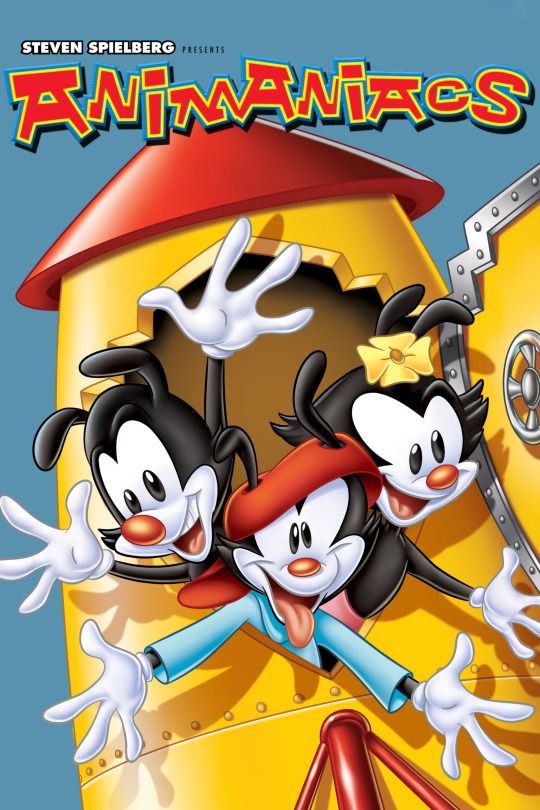
#tv series#tv shows#polls#animaniacs#rob paulsen#jess harnell#tress macneille#1990s series#us american series#have you seen this series poll
122 notes
·
View notes
Text

Hello everyone!
I'm here today to introduce you to the series chosen by the winner of the last bonus article (on Instagram, @theaddictedwatcherreviews). Created by Matt Groening (The Simpsons, Futurama, The Tracy Ullman Show) and Josh Weinstein (The Simpsons, Futurama, Gravity Falls), this animated series for adults was released on Netflix in 2018 and will run until its conclusion in 2023. Made up of 50 episodes spread over three seasons, the series and its dark humour have won the hearts of audiences and critics alike. I'm talking about Disenchantment, of course!
First, as always, a short synopsis: Set in the fictional medieval kingdom of Dreamland, the series follows the story of the adventurous, rebellious and alcoholic Princess Bean, her "personal demon" Luci and her elf companion Elfo. The three of them explore Dreamland and other neighbouring lands, discovering a mythical conspiracy to which Bean is the key…
And a little technical presentation:
- Created by Matt Groening and Josh Weinstein
- Music by Mark Mothersbaugh
- Starring : Abbi Jacobson, Eric André, Nat Faxon, John DiMaggio, Tress MacNeille, Matt Berry, Maurice LaMarche, Sharon Horgan
This review is going to be a little shorter than usual, not because I didn't enjoy the show, I really did, but because I don't have that much to say about it.
GENRE
With Disenchantment, Matt Groening wanted to create an adventure in a medieval fantasy world that would allow him to move away from the very distinctive universes he had previously created with The Simpsons - set in our current world, but more centred on the United States in the 1990s - and Futurama - set in a futuristic world. So he mixed several genres in his writing, creating a unique blend that differentiates it from other animated series:
Fantasy: The main setting of the series is a medieval fantasy world called Dreamland, which includes magical creatures (elves, demons, mermaids), spells and mythical elements. The fantasy aspects allow for a creative construction of the world and the plot.

Humour: The humorous tone of the series is a key element, ranging from slapstick to dark comedy and satire. It often parodies fantasy tropes and medieval settings, using both puns and visual gags.
Adventure: Characters often embark on quests and journeys, exploring new lands and facing various challenges. These adventures drive the plot and character development.

Drama: As the series progresses, it incorporates more dramatic elements, exploring deeper themes and emotional intrigue. The relationships between the characters and their personal development become increasingly important and, by giving them depth, help to move the plot forward.
Satire: The show often satirises modern issues through its fantasy lens, criticising social norms, politics and human nature.
Science Fiction: While primarily a fantasy series, the show sometimes incorporates science fiction elements, especially in later seasons, with time travel and advanced technology in a medieval setting.

Mystery: Revelations about characters' pasts add an element of mystery to the show and help move the plot forward. Conspiracy theories and hidden truths are ubiquitous in the story.
Coming of age: Bean's journey of self-discovery and growth gives the show a very human dimension that viewers can relate to. This aspect becomes more important as the show progresses.
Adult Animation: While not as explicit as other adult animated series, Disenchantment deals with mature themes and contains mature content, both in its humour and in the themes of the story.
The mix of these genres allows Disenchantment to appeal to a wide range of viewers and to explore different storytelling styles. It differs from Matt Groening's previous work in that it relies more heavily on serialised storytelling, running throughout the series rather than episodically. It also relies more heavily on fantasy elements, while still retaining its signature humorous style.
While the balance between comedy and more serious elements is sometimes uneven, the show's ability to move from light comedy to more dramatic moments has often been seen as both a strength and a challenge in maintaining a consistent tone.
HUMOR
The humour in Disenchantment is multi-faceted, drawing on a variety of comedic styles. It uses sarcasm and wit, particularly in Luci's dialogue and Bean's quips, which are often used to subvert expectations or comment on absurd situations. Comedy derived from the personality traits and quirks of the main characters is also very present. Elfo's naivety, Luci's cynicism and Bean's rebelliousness are frequent sources of humour. Anachronisms refer to modern sensibilities and, when used in a medieval fantasy setting, allow humour to be created through the contrast between contemporary ideas and the period in which the series is set. The background jokes and visual gags are reminiscent of Matt Groening's other work and help to break up a dramatic situation. There are also small rewards for the attentive viewer in the form of hidden jokes and Easter eggs from Matt Groening's other works, as well as other pop culture creations. While the pop culture references are present, some viewers felt that they were not as clever or numerous as in Futurama, which had set the bar very high for this type of humour in animated series.
Dark humour, when used wisely, often allows morbid subjects or unfortunate events to be dealt with in a lighter way. It helps to create a balance between fantastical elements and a more adult tone, to counterbalance the tragic side of certain events, but also the very absurd touch of certain jokes. Indeed, the series exploits the bizarre and illogical aspects of its fantasy setting for comedic purposes, exaggerating the absurdity of these aspects and often taking situations to extreme or unexpected conclusions in order to make people laugh. However, the combination of dark humour and lighter jokes is sometimes awkward and creates moments of imbalance that can disrupt the viewer's appreciation.
The show sometimes breaks the fourth wall or makes self-referential jokes about the conventions of storytelling to remind the viewer of their status as witnesses and the show of its status as entertainment. Matt Groening does not hesitate to poke fun at fantasy tropes and medieval settings. It is often a social commentary on contemporary issues - such as LGBT acceptance or feminism - through the prism of fantasy. Its clever use of language and puns, particularly on proper names, are among the many devices used to construct the show's humour. It often incorporates multi-layered jokes and running gags that develop over the course of episodes or seasons. These help to create a sense of continuity and reward long-time viewers. Finally, the show also uses slapstick, which is a style of humour that goes beyond the boundaries of normal physical comedy, often involving the misfortune or clumsiness of the characters.
Overall, Disenchantment's humour is more mature and complex than typical animated films and series, while still maintaining broad appeal through its blend of comedy and humour. The series has been praised for its clever writing and ability to blend different comedic styles. However, other critics have noted that the humour is very different from that of Futurama and The Simpsons and did not appeal to them. The balance between humour and more serious, plot-driven elements has also been debated, with some feeling that the comedy has sometimes taken a back seat to the storytelling in later seasons.
In addition, some have felt that many of the jokes are too obvious or rely on tired tropes, especially when compared to the innovative humour of Futurama or the early seasons of The Simpsons. Although anachronistic humour is a staple of the show, some felt that it was overused or not always executed effectively.
After that, it should be noted that humour is subjective, and that the qualities and flaws listed above are only what I have been able to notice, but also feedback I have been able to get from people who have seen the series, and of course everyone is free to have a different opinion on any of the points mentioned.
THE ANIMATION STYLE
The animation style of Disenchantment is very recognisable and shares some similarities with Matt Groening's other works, while also having its own elements. Indeed, as in Futurama or The Simpsons, the characters have some similar physical characteristics, such as bulging eyes or a prominent upper jaw. However, the characters are more detailed and varied, with a greater variety of body types and characteristics. The characters' facial expressions are also more varied and nuanced than in The Simpsons and Futurama. This allows for more complex emotions to be conveyed through smoother animation, and also favours the show's most dramatic moments. Clothing and accessories are also more complex, in keeping with the fantasy setting.
Speaking of fantasy, the show uses a rich and vibrant colour palette that is more suited to the setting. It has a wider range of colours than The Simpsons, with more subtle shading and lighting effects. It also incorporates magical effects and fantasy elements not found in Matt Groening's other shows, using digital effects to enhance traditional animation techniques. The show also uses more advanced lighting techniques to create a different mood and atmosphere from Futurama and The Simpsons. The use of shadows and colour gradients helps to enhance the fantasy setting. The 16:9 widescreen backgrounds allow for very detailed visuals that also help to bring the medieval fantasy setting to life in a more elaborate and varied way than in Matt Groening's previous works. They reflect a more varied palette of locations and a better incorporation of magical elements. They also often contain jokes or hidden references.

On a more technical level, the series takes advantage of its fantasy setting to create imaginative and visually striking sequences. As with Futurama, the animation of the series was entrusted to Rough Draft Studios, and there are many similarities between the two work. It is further distinguished from The Simpsons, which is animated by various animation studios, including Rough Draft. The action scenes are more dynamic and elaborate than in Matt Groening's previous works. Although primarily in 2D, the series occasionally incorporates 3D elements for specific effects or scenes, and maintains a consistent style throughout the series, with gradual improvements over time.
The animation style of Disenchantment has been praised for its attention to detail, particularly in the background and character designs. The style effectively supports the comedic and more serious aspects of the series, allowing for expressive character performances and immersive world-building. Disenchantment's animation can also be seen as an evolution of Matt Groening's style, adapted to modern techniques and a fantastical setting.
CHARACTER DEVELOPMENT
The character development in Disenchantment is generally considered to be one of the strengths of the series, especially as it progressed.
I won't go into the development of every single character, as that would take far too long, but I will at least touch on the work done on the three central characters of the series.
[SLIGHT SPOILERS]
First, Bean - whose full name is Tiabeanie Mariabeanie de la Rochambeau Grunkwitz - begins the series as a rebellious and alcoholic princess, running away from her responsibilities and desperate for freedom. Her impulsiveness and ability to make bad choices are emphasised in order to exacerbate the character's future development. In fact, through the adventures she will have and the discoveries she will make, she will become a more responsible and self-aware character.

Her friendships with Elfo and Luci help her to develop emotionally, learn loyalty and trust, and encourage her to excel. In addition, Bean's complicated relationships with her father, King Zøg, and her mother, Queen Dagmar, are crucial points in her development. Between Zøg's expectations of his princess daughter and heir, and Dagmar's manipulations, she is led to a more nuanced understanding of family. Her romantic experiences contribute to her character development, as they also help her to understand herself better and influence her decisions. She is faced with many ethical dilemmas, and through all these experiences she shows an evolution in her values, but also in her strength of character. Still as stubborn as ever, she ends up assuming her share of responsibilities and her role as leader but always on her own terms. Her struggles with identity, relationships, and magical abilities are relatable to the audience, and the quality of the performance by Abbi Jacobson—who voices Bean—highlights the character's ambivalence, fragility, strengths, and evolution. Bean's evolution is one of the show's strong points, thanks to the depth that has been given to her character over time. Her transformation from a one-dimensional party girl to a complex, multifaceted character with real struggles and triumphs is often cited as one of the show's strong points.
Then, the development of Luci -Lucifer- is quite interesting and unique in its kind because of its demonic nature. He is presented to us as Bean's personal demon sent to corrupt her and cause chaos and is therefore portrayed as a sarcastic and Machiavellian character regularly encouraging Bean in her worst ways.

However, as the series progresses and his relationship with Bean and Elfo develops, Luci's character begins to question his original goal and his loyalty to his demon master in order to gain his independence. This internal conflict allows us to show that the character is able to develop his moral sense beyond what he initially expected. Although he remains a demon throughout the series, it is interesting to see this ambiguity settle in him, because through his journey the viewer can see that there can be good and bad in everyone. Thanks to his sarcasm and this evolution, Luci is one of the audience's favourite characters, and Eric André's interpretation perfectly underlines this duality of comic and sentimental character. In fact, the evolution of his morals and his attachment to Bean and Elfo over the last few seasons is a perfect illustration of the journey he has taken. However, I find that in the last season the character seems more erased, more absent, and that's a shame for a character who has had one of the biggest developments in the series.
Finally, the character of Elfo! Elfo's development over the course of Disenchantment has received mixed reactions, as some viewers initially found Elfo to be one-dimensional and too naive, but his constant optimism and innocence are endearing and potentially annoying. The exploration of his origins and half-elf heritage added depth to his character and provided a context for his behaviour and outlook. Over time, Elfo has shown more complexity, dealing with issues of identity and belonging. As such, his gradual loss of innocence and assertiveness has made the character less polished and therefore more interesting. At the beginning of the series, Elfo's role was mainly to be a source of humour, but also a receptacle for Bean's doubts. But as the story progressed and he developed, his naivety gave way to more nuanced comedic moments, and while it was interesting to see him develop, the lighter side he brought was sometimes lacking. His relationship with Bean also contributed greatly to the character's maturity.

Indeed, Elfo's unrequited love for Bean was a troubling aspect of the story for me, as it came out of nowhere and seemed a little forced at first, but I am aware that some found it endearing and were able to relate to it. Personally, I found it mostly a repetitive motif and one that hindered his personal development. However, his relationships with Bean and Luci were crucial to his development and helped to highlight his growth. Overall, Elfo's journey of self-discovery, particularly regarding his heritage and place in the world, was seen as an important aspect of his arc. As he faces more complex situations, his responses to moral dilemmas add depth to his character and help to show that he has matured over the course of the series. He becomes more than just a naive sidekick, but at times his development can feel overshadowed by Bean's 'bigger' arc.
[END OF SPOILERS]

Other characters such as King Zøg, Queen Dagmar or Oona have had very interesting developments that deserve to be developed, but I don't want to say too much about them so as not to completely spoil the story for those who want to watch the series. I would just like to point out that even the secondary characters have had the right to develop their personalities and their stories, and that this has made them endearing and important characters for the development of the story.

This is a credit to the show, which has been praised for allowing characters to change and grow over time, unlike the more static characters in most of Matt Groening's work. However, there have been times during the series when character development has been sacrificed to the needs of the plot, to the detriment of certain characters' development. Nevertheless, the exploration of family dynamics, particularly Bean's relationship with her parents, is one of the show's greatest strengths.
THE END OF THE SERIES
I will not, of course, recount the events leading up to the end of the series, but I would like to briefly share my feelings.
The second part of the fourth season, released on Netflix in 2023, concludes the series. Although it attempts to wrap up most of the major plots and character arcs, I felt that some stories were rushed, trying to wrap up too many storylines in too short a time. Despite the attempts at closure, some plot points or mysteries were left unresolved or explained in a shaky way.
Nevertheless, the development of the characters and the emotional impact of the resolution of some of their plots resonated with me, particularly in relation to friendship, intra-family relationships and mental health.
The balance between humour and more serious plot elements in the finale seems rather uneven, but the fact remains that these two key elements of the series remain present throughout the story and contribute to the very specific construction of Matt Groening's works.
Although the main story has come to an end - whatever one thinks of the ending - some aspects of the ending have left room for possible future stories. As is often the case with series endings, opinions will vary greatly depending on the viewer's expectations, but for me it left me a little hungry for more, with unanswered questions and an ending that felt a little forced on the audience.
MUSIC
Disenchantment's soundtrack plays an important role in establishing the atmosphere of the series and enhancing its narrative. Composed by Mark Mothersbaugh (The Rugrats, The LEGO Movie), the soundtrack blends medieval fantasy-inspired music with more contemporary elements. It uses a mix of orchestral arrangements and electronic components, reflecting the series' blend of traditional fantasy and modern humour. It also helps to bridge the gap between the show's medieval fantasy setting and humour and more contemporary themes.
The opening theme is a medieval-style instrumental that sets the tone for the fantasy setting, but also incorporates elements that evoke both the fantasy and darker aspects of the series.
Several characters are associated with musical motifs that recur throughout the series, often evolving with the characters to reflect their development.
The music shifts effectively from comical to adventurous to darker tones to match the different moods of the series. Occasionally, there is music in the world, such as minstrel songs or tavern shows, which adds to the medieval atmosphere. Although not a musical series, Disenchantment occasionally features original songs to add to the narrative or humour.
CONCLUSION
There has been no official announcement regarding the confirmation of a sequel or spin-off to Disenchantment to address the open-ended aspects of the ending. However, Matt Groening and the show's creators have not publicly ruled out the possibility of revisiting the world, without providing further information about the possibility. Netflix, which streamed the series, has also not made any statement regarding the continuation of the series or ordering a sequel, despite the demand from fans of the series.
As for me, although the unanswered questions leave me with a slightly bitter taste, I would not want to see a new season of Disenchantment see the light of day for fear that, like too many shows, it would drag out the original story and make the series lose all the effectiveness that lay in its original writing. Why not, on the other hand, a medium-length animated film to tie up the loose ends without starting new ones that would not necessarily be needed.
All in all, I really enjoyed this series, which brings a bit of madness and freshness to our everyday lives, while at the same time dealing with themes that a large part of the audience can relate to, and also using humour to talk about social issues such as feminism and ecology.
It seems to me that I have covered everything I could possibly say about Matt Groening and Josh Weinstein's Disenchantment, so I will leave you for now and return to my viewing!
For those of you who are going to try to watch it, or who have watched it, do not hesitate to tell me what you thought of it!
As always, you can follow my adventures and the next polls on Instagram (@theaddictedwatcherreviews). I am always open to feedback and suggestions, so feel free to drop me a line if you like!
Have a good week, good viewing and see you soon!
Eli
#tv show#review#disenchantment#animation#matt groening#josh weinstein#Abbi Jacobson#Eric André#Nat Faxon#John DiMaggio#Tress MacNeille#Matt Berry#Maurice LaMarche#Sharon Horgan#music#mark mothersbaugh#fantasy
2 notes
·
View notes
Text
On February 1, 1991, the Tiny Toon Adventures cartoon did an all music video cartoon that featured two songs from They Might Be Giants... Particle Man and Istanbul (Not Constantinople). ("Tiny Toon Music Television", Tiny Toon Adventures, TV)

#nerds yearbook#febuary#1991#tiny toon music television#tiny toon adventures#cartoon#animation#music#sherri stoner#paul dini#tom minton#art vitello#bruce timm#douglas mccarthy#stephen spielberg#buster bunny#tv#charlie adler#babs bunny#tress macneille#joe alasky#plucky duck#tmbg#they might be giants#instanbul#particle man#jeff bergman#elmer fudd#julie brown
10 notes
·
View notes
Text
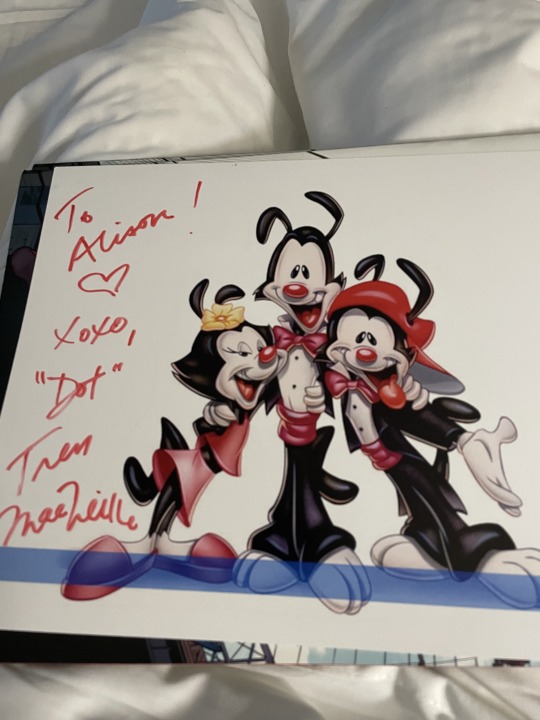

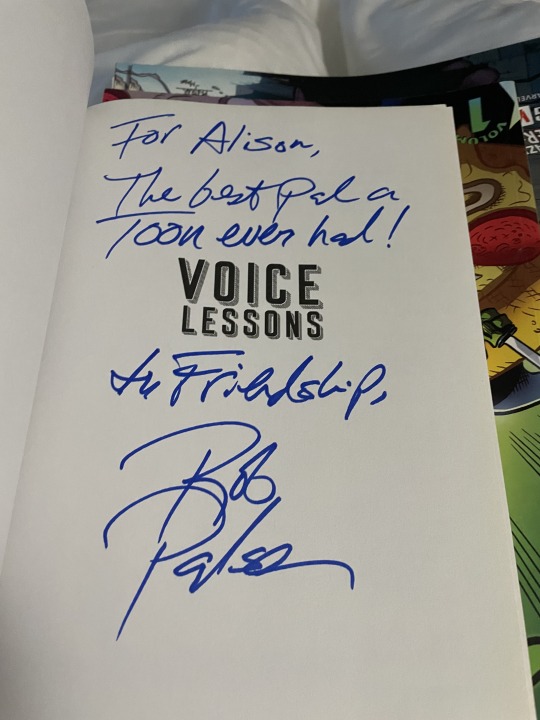


Nothing can ever match the sheer joy I felt this day. I finally was able to meet some of the people I most wanted to! And they were all so nice!
#animaniacs#nycc 2023#i can die happy now#rob paulsen#jess harnell#tress macneille#they were all so nice!
16 notes
·
View notes
Text

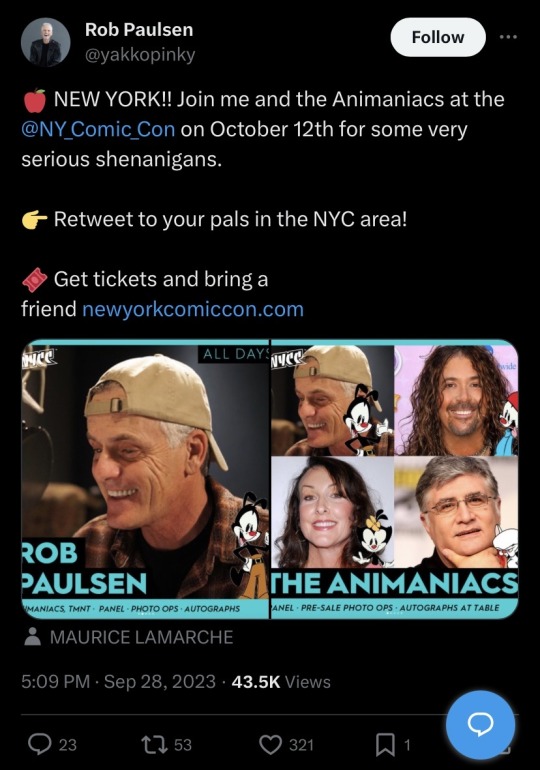
Nice.
NYC ComicCon has Animaniacs panels.
Tom Ruegger is at Choice Fine Art Booth 3253 on October 12-15.
Rob Paulsen, Jess Harnell, Tress MacNeille, and Maurice LaMarche are there on October 12.
#animaniacs#NYC ComicCon#panels#tom ruegger#rob paulsen#jess harnell#tress macneille#maurice lamarche
12 notes
·
View notes




